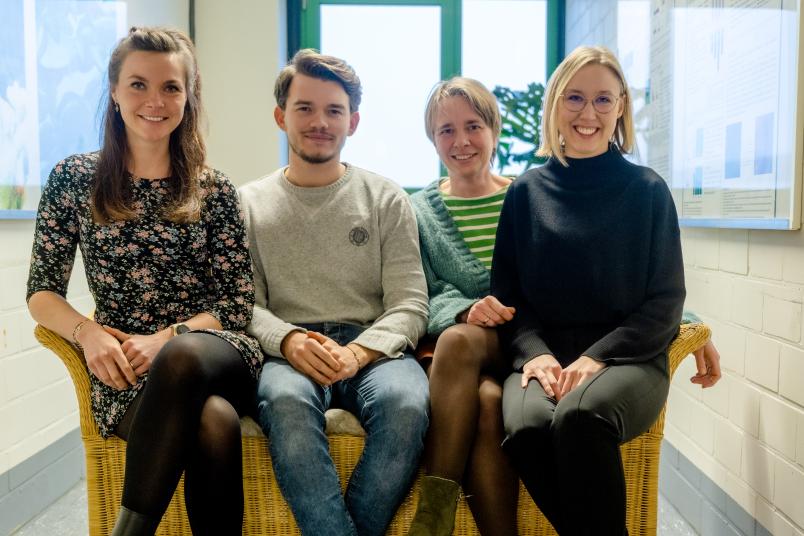
Optogenetics A new tool for studying processes in the cerebellum
Light can trigger a signalling cascade in the cerebellum. This also illuminates processes that play an important role in cerebellar diseases.
Processes in the cerebellum are involved in various diseases that affect motor learning. These can be better investigated using a new tool developed by a Bochum research group: a light-activatable protein that is coupled with part of an excitatory receptor. This optogenetic tool allows light to activate a signalling pathway in neurons of the cerebellum and observe its effects. For example, the group led by Dr. Ida Siveke from Professor Stefan Herlitze's research group at the Ruhr University Bochum, Germany, was able to show that the signalling pathway is involved in cerebellum-controlled motor learning. The researchers report in the journal iSience of 16 December 2022.
The brain adapts
One of the most fascinating properties of the human brain is its capacity for plasticity. This means that the brain adapts its activity to external and internal conditions. The function of neuronal circuits as well as behaviour, thoughts or feelings can change as a result. Neuronal plasticity can for instance be caused by developmental or disease-related changes in hormone balance, but also by drugs or genetic changes. To investigate how this is influenced by individual groups of nerve cells or receptors, researchers use optogenetic methods. This involves using light-activated proteins to specifically visualise neuronal signals or to control cell functions through light.
The metabotropic glutamate receptor type 1 - mGluR1 for short - plays an important role in the neuronal plasticity of the cerebellum. Its activation causes certain connections between nerve cells, the so-called synapses, to change.
A tool helps to look into the cerebellum
"In order to study and modulate plasticity in the cerebellum, we have developed an optogenetic tool that allows us to modulate the mGluR1 signalling cascade through light", report Ida Siveke and Tatjana Surdin. This tool, called OPN4-mGluR1, consists of a light-sensitive protein, melanopsin or OPN4, which is coupled with part of the mGluR1 receptor and can be introduced into various cells and produced there. "This allowed us to activate the signalling pathway in the same way as it happens naturally. But now through light", explains Tatjana Surdin. Activation causes an increase in the concentration of calcium in the nerve cells and an increase in activity in certain cells of the cerebellum, the Purkinje cells. Activation of the signalling pathway downregulated the function of a specific synapse, the parallel fibre-Purkinje cell synapse, for a prolonged period of time. Motor learning controlled by the cerebellum could also be improved by light activation. "This means our OPN4-mGluR1 tool opens up new possibilities for studying different types of cerebellar-associated diseases, such as spinocerebellar ataxias, which are based on dysfunction of mGluR1 signalling and neuronal plasticity", says Ida Siveke.